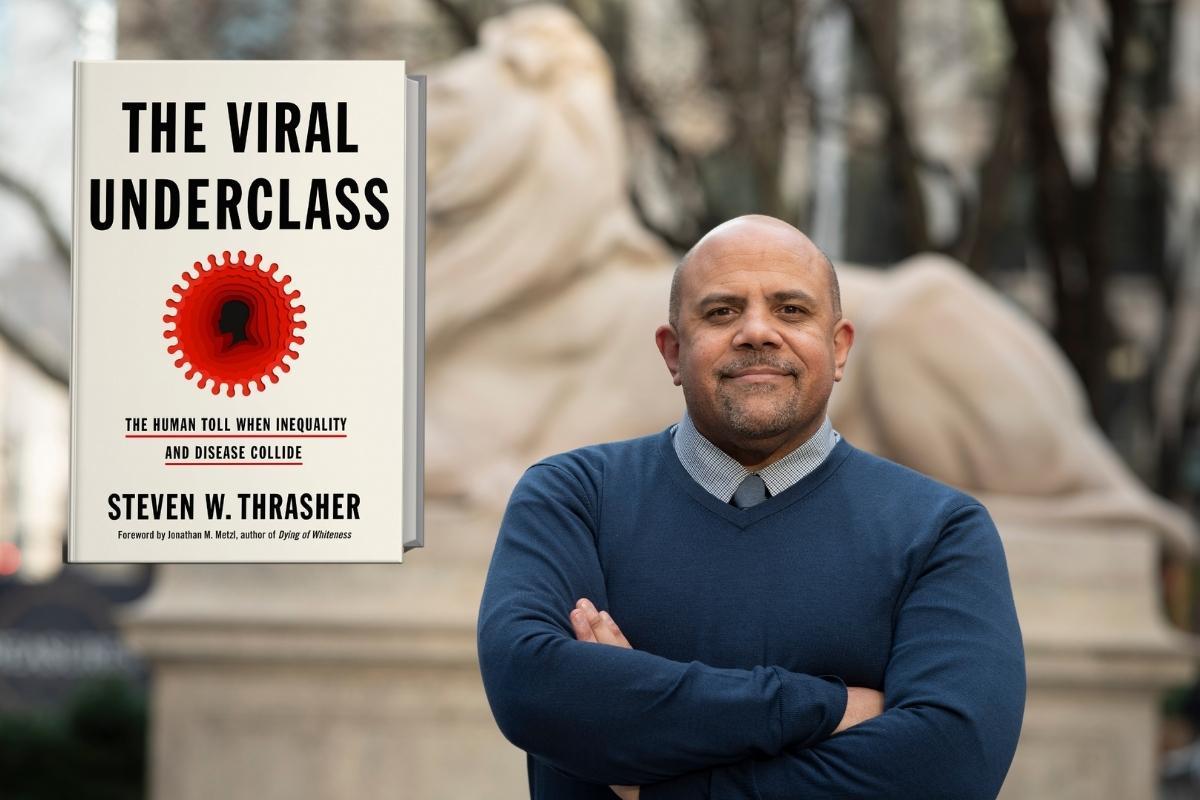Prominent LGBTQ+ scholar, social critic and journalist Steven W. Thrasher, author of the new book, “The Viral Underclass,” will give an online public talk from 3-4 p.m. Tuesday, Oct. 4, as part of community conversations surrounding Emory’s current university course, “Pandemic Reflections,” taught by Jodie Guest, vice chair of epidemiology at Rollins School of Public Health. Guest will host Thrasher’s talk via Zoom; attendees can register here.
“The Viral Underclass: The Human Toll When Inequality and Disease Collide” describes how viruses expose the fault lines of society. Thrasher shows the vast inequalities in who is able to survive viruses and demonstrates that the ways in which viruses spread, kill and take their toll are much more dependent on social structures than they are on biology alone.
In its review, the Washington Post noted that the book “is at its most searing when Thrasher shows, by the numbers and by the people, how various public health crises have compounded in America to create the viral underclass — and then, too often, to blame them for their own suffering.”
Thrasher holds the inaugural Daniel H. Renberg Chair at Northwestern University’s Medill School of Journalism, the first journalism professorship in the world created to focus on LGBTQ+ research. His writing has been published by Scientific American, the New York Times, The Nation, The Atlantic and many others.
In 2019, Out magazine named Thrasher of the 100 most influential people of the year and in 2020, the Ford Foundation awarded him a grant for Creativity and Free Expression. An alumnus of media jobs with Saturday Night Live, the HBO film “The Laramie Project “and the NPR StoryCorps project, Thrasher has been a staff writer for the Village Voice and a columnist for The Guardian.
“Pandemic Reflections,” the current university course at Emory’s Center for Faculty Development and Excellence, focuses on HIV/AIDS and COVID-19 as two ongoing pandemics that have taught us about science and disease while bringing into sharper focus issues surrounding stigma, religion, communication, inequity and politics.

